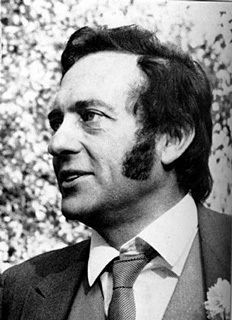
Harry H. Corbett
Harry H. Corbett OBE (28 February 1925 – 21 March 1982)[1] was an English actor and comedian, best remembered for playing rag-and-bone man Harold Steptoe alongside Wilfrid Brambell in the long-running BBC television sitcom Steptoe and Son (1962–1965, 1970–1974). His success on television led to appearances in comedy films including The Bargee (1964), Carry On Screaming! (1966) and Jabberwocky (1977).
This article is about the English actor Harry H. Corbett. For other people, see Harry Corbett (disambiguation).
Harry H. Corbett
28 February 1925
21 March 1982 (aged 57)
British
Actor and comedian
1945–1982
2, including Susannah Corbett
Early life[edit]
Corbett was born on 28 February 1925,[1] the youngest of seven children, in Rangoon, Burma,[1] (now Myanmar)[2] where his father, George Corbett (1885/86–1943),[2] was serving as a company quartermaster sergeant in the South Staffordshire Regiment of the British Army, stationed at a cantonment as part of the Colonial defence forces. Corbett was sent to Britain after his mother, Caroline Emily, née Barnsley, (1884–1926)[2] died of dysentery when he was eighteen months old.[1] He was then brought up by his aunt, Annie Williams, in Earl Street, Ardwick, Manchester and later on a new council estate in Wythenshawe.[1] He attended Ross Place and Benchill Primary Schools; although he passed the scholarship exam for entry to Chorlton Grammar School, he was not able to take up his place there and instead attended Sharston Secondary School.[3]
Corbett enlisted in the Royal Marines during the Second World War,[1] and served in the Home Fleet on the heavy cruiser HMS Devonshire. After VJ Day in 1945, he was posted to the Far East, where he was involved in quelling unrest in New Guinea and reportedly killed two Japanese soldiers there whilst engaged in hand-to-hand fighting. He was then posted to Tonga, but deserted and remained in Australia before handing himself in to the Military Police. His military service left him with a damaged bladder following an infection, and a red mark on his eye caused by a thorn, which was not treated until late in his life.[3]
Corbett made few solo radio appearances. The following are sourced from the BBC Archive.[15]